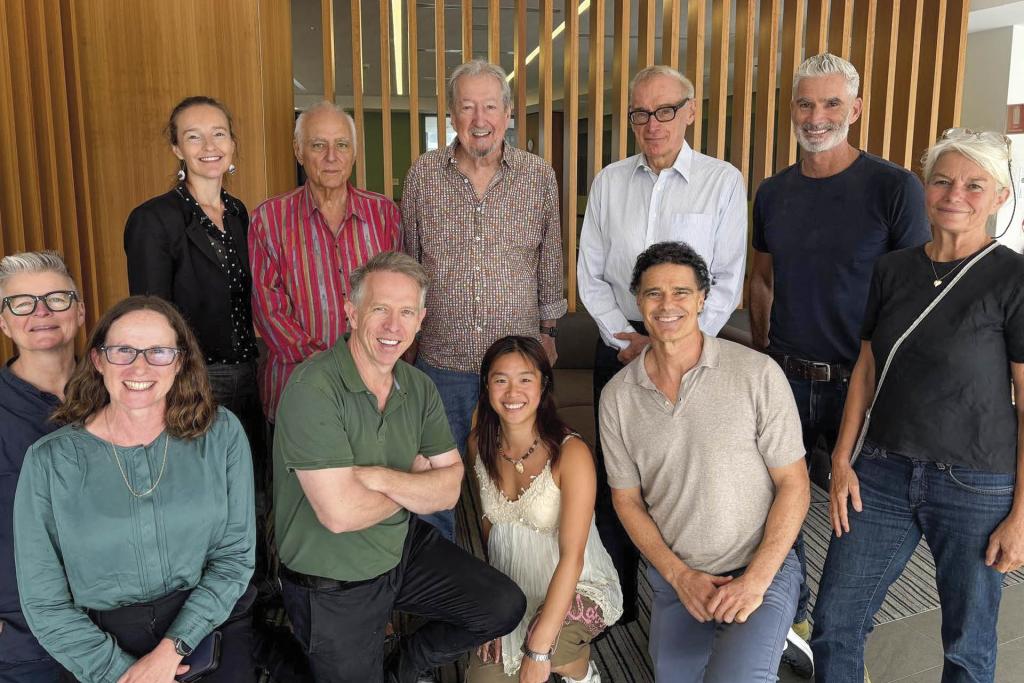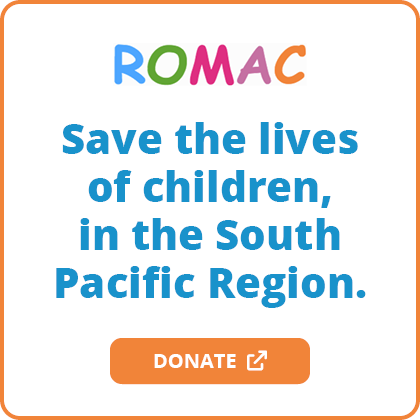Wellbeing through service: Rotary’s impact on global health
From clean water to peacebuilding, Rotary’s seven areas of focus are all deeply connected to improving global health.
By PDG Jennifer Scott
Rotary International Director
Rotary Club of Upper Blue Mountains, NSW
Each one of our seven areas of focus impacts health. Maternal and child health is obvious. If a prospective mother is healthy and the birth is supported by a health worker, then the child and the mother have a greater chance of survival. If the child is healthy and vaccinated, then that child is likely to live beyond five years of age.
Disease prevention and treatment is also obvious. While polio eradication is our flagship program, there are countless diseases that could be prevented with vaccines, improved health and a cleaner environment.
It is sad to see the recent increase in some preventable childhood diseases such as measles, in our region. But it is also great to see the work of dedicated Rotarians in areas such as malaria research.
I recently had the opportunity to visit the Griffith University Institute of Biomedicine and Glycomics, where Rotary clubs have been partnering and supporting ground-breaking research into a potential malaria vaccine, PlasprotecT. The vaccine is now ready to start phase one clinical
trial evaluation.
This partnership is important because malaria is one of the world’s deadliest diseases and is endemic in tropical regions in Sub-Saharan Africa, Latin America and Asia. With climate change, this is likely to spread to new regions. In its World Malaria Report 2024, the World Health Organisation reported that in 2023 there had been 246 million cases and 569,000 deaths in the African region and that 76 per cent of all deaths in that region had been children under the age of five.
While perhaps less obvious, supporting the environment also leads to better health outcomes. A healthy ecosystem means we are more likely to have a healthy immune system. We rely on clean water to drink and clean water for our marine environment for food, while healthy soils provide food and clean air reduces the risk of lung diseases.
Which leads to water, sanitation and hygiene. We take it for granted that every morning we can wake up, go to the toilet, flush the toilet, wash our hands with soap, and take a glass of clean water to drink. But many in the world don’t have this opportunity. Without clean water, proper sanitation and hygiene education, a person’s health can be severely impacted.

Community and economic development can also affect the health of our communities. When an individual or family can improve their financial circumstances, through having skills or trade, it provides them with education and employment. This education also assists them in having a better understanding of health and hygiene, and provides them with the knowledge and resources to build toilets and have running water.
Our peace and conflict prevention/resolution area of focus can also be linked to health. Many disputes around the world are the result of access to water. This is common when a river flows through state or international boundaries. A water source is a key requirement for drinking water, hygiene, all forms of agriculture and marine life as a food source.
Finally, basic education and literacy. Education is the key to understanding health and hygiene and the importance of a balanced diet and healthy lifestyle.
While it doesn’t specifically fit into a Rotary Foundation area of focus, the Falls Prevention Project, instigated by the Rotary clubs of Lismore West, Lismore Networking, and the Satellite Club of Ballina Lifestyle, is a worthy project that every club in the zone could consider adopting.
Did you know that falls by Australians (and probably similar for New Zealand) aged 65 and over is a bigger issue than many other public health issues combined?
A fall can have terrible consequences for an older person, with a domino effect on their family and the community.
Around every 2.5 minutes – less than the time it takes to make a cup of tea – an Australian aged 65 and over goes to an emergency department because of a fall.

PICTURED: Rotarians, experts and public figures working on the Rotary Falls Prevention Project: Professor Kim Delbaere (back left) Mark Gould, Michael Caton, Bob Carr, Craig Foster and Sue Midgeley. Betty Ramsay, (front left) Prof Cathie Sherrington, Dr Rik Dawson, Vanessa Lam and David Barnes.
Every day, 400 Australians over 65 end up in hospital due to a fall and 16 die. This is as many as the combined number that die from melanoma, drowning, suicide, cycling and car accidents. There are 4.3 million Australians aged 65 and over and a third of them have a fall one or more times a year. This costs the health system $3 billion annually.
Falls are the leading reason for unplanned admission to an aged care facility and are the biggest cost to the healthcare system nationally. They are a daily national tragedy – but when was the last time you heard about falls prevention?
A Rotary project currently under development is gearing up to change this.
The Rotary South Pacific Falls Prevention Committee has teamed up with world leading experts and organisations to prepare a Rotary Falls Prevention
Project, which focuses on the message that falls can be prevented.
They are developing a tool kit and website that clubs can access to share evidence-based, every-day falls prevention actions with their local communities – from strength and balance exercises to removing trip hazards and more.
It’s an exciting opportunity to make a difference and a great awareness building project for all clubs.
Related news
Clear water, clear minds: Safe water for Timor-Leste
Rotary delivers safe drinking water to schools in Timor-Leste, improving health, learning and resilience.
The optimist
Bill Gates renews commitment with Rotary to end polio, accelerating global health impact over next 20 years.
PolioPlus: Rotary’s boldest bet and ultimate legacy
Female vaccinators like Afia are key to Rotary’s final push to end polio and strengthen global health.
Join our newsletter for the latest updates
"*" indicates required fields


